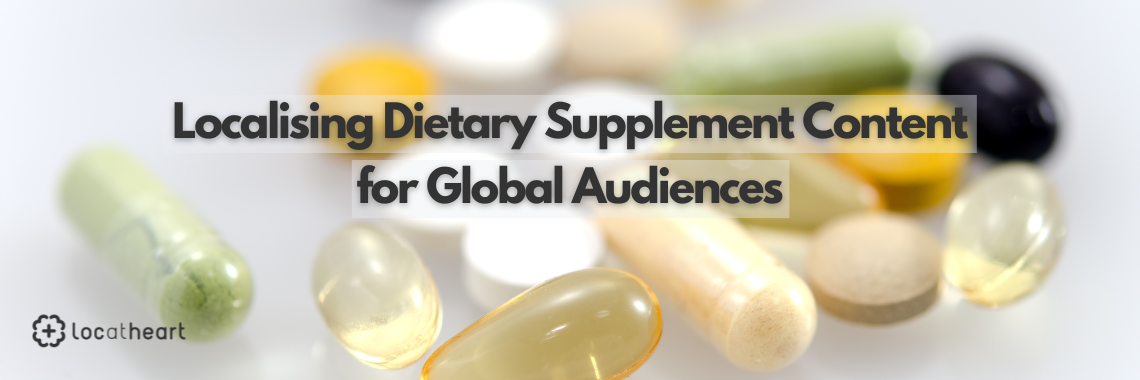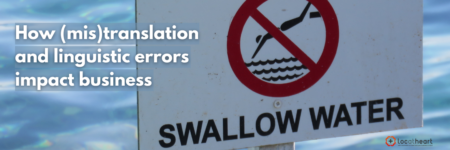Recipe for Success: Localising Dietary Supplement Content for Global Audiences
The dietary supplement industry is not only one of the fastest-growing sectors in the world, but it’s also a tapestry of intricate narratives woven through biology and cultural context. As global trade routes tighten and the world becomes more connected than ever before, the importance of crafting dietary supplement content that resonates with a diverse, global audience cannot be overstated.
But where do you start when aiming to cater your dietary supplement offerings to various cultural palettes? How do you navigate regulations and customs when marketing health-centric products across borders? It’s a complex recipe for sure, but with the right ingredients – knowledge, empathy, and strategic implementation – it’s one that can yield significant success.
This blog post will guide you through crafting a content strategy that ensures your dietary supplement enterprise not only speaks the language of the global market but also sings the nuanced tunes of international health and wellness. Let’s dive deep into the details of localising your dietary supplement content and packaging for maximum international impact.
Understanding the Target Audience
In the vast global landscape, each region is unique, with its own set of values, dietary habits, and health priorities. Research into your intended audience’s cultural preferences is the foundational step in content localisation. It’s crucial to understand the local beliefs and practices related to wellness and nutrition. For instance, while some cultures may heavily rely on traditional natural remedies, others may be more open to modern dietary supplements aligned with scientific research; similarly, some regions may be very particular in terms of the choice between natural vitamins and synthetic vitamins.
When it comes to dietary needs, you must consider the region’s predominant cuisines and the role of nutritional supplements within these contexts. Some supplements may align naturally with regional palates and dietary norms, making them more appealing and accessible to local consumers. Understanding this can help in creating marketing content that resonates with your international customers.
Moreover, what can significantly influence consumer perceptions and purchasing decisions are ethnic differences in nutritional needs and tolerances. For example, research demonstrates that Black and Hispanic populations have a higher prevalence of lactose intolerance compared to their white counterparts1, impacting the demand for lactose-free supplements and dairy alternatives. This diversity in dietary requirements necessitates a nuanced approach to product development and marketing, ensuring that messages are carefully tailored to resonate with a consumer base, especially a culturally diverse one. Brands that successfully address these differences can foster inclusivity, demonstrating an understanding and respect for the unique needs of diverse demographic groups, thereby strengthening their position in a competitive marketplace.
Adapting Product Packaging and Labels
Translating and localising the packaging and labels of your dietary supplements is not only about language but also about aesthetics and context. The information on your product must be clear and compelling in the local dialect, and this may involve more than just a simple translation. It should also be visually appealing and congruent with cultural norms.
Highlighting ingredients with cultural significance can also be a successful approach. In some cultures, certain ingredients might be revered for their historical or mythological significance, and incorporating these into your product can add a touch of authenticity and resonance. Alternatively, such allusions could serve as a marketing strategy in far-off regions, like when supplement brands opt to promote themselves with nods to Chinese or Ayurvedic medicine in European markets.
Navigating the regulatory landscape is a part of product localisation. Each country has its own set of regulations regarding labelling and packaging of dietary supplements, and compliance is non-negotiable.
Translating Marketing and Promotional Materials
An accurate translation of your marketing and promotional materials is the baseline. But adapting marketing messages for different markets is about more than language. The tone, the use of humour or seriousness, and the explicitness of claims can all drastically shift depending on the cultural perception of health and wellness.
Localising website content and product descriptions also includes optimising for local search engines. Understanding and using relevant keywords (properly identified from scratch, not merely translated) is essential for your international customers to find your products online.
Navigating Regulatory and Legal Considerations
Regulations in the health supplement industry are as diverse as the international market itself. You must ensure that your products and their promotional materials comply with the regulations of each specific market you intend to enter. This includes not only the formulation and labelling of your supplements but also the marketing claims you make.
Understanding and navigating these legal considerations can be a time-consuming process, but it’s critical for the long-term success of your international ventures. An experienced legal team, in conjunction with thorough market research, can help mitigate the risks of non-compliance and ensure a smooth entry into new markets.
Conclusions
As you venture into the international market, remember that your journey will be as unique as the regions you seek to enter. Flexibility, adaptation, and a willingness to learn will be your compass in navigating the diverse landscapes of global health.
As already mentioned, key considerations for businesses in the supplement industry involve, but are not limited to:
- adjusting product formulations;
- accounting for packaging sustainability and design preferences;
- devising targeted promotional strategies;
- and assuming appropriate communication approaches to align with regional dietary customs, cultural nuances, prevailing beliefs, population-specific ingredient preferences, and pertinent legal regulations.
The recipe for success in localising texts related to food supplements involves a blend of precise preparation, a pinch of understanding, a dash of creativity, and a generous serving of respect for the cultural tapestry of the world. By crafting content that is authentic and resonates with the values and lifestyles of your international audience, you pave the way for a flourishing global presence in the dietary supplement market.
1 (https://www.washingtonpost.com/dc-md-va/2022/12/13/new-usda-guidelines-milk-kids-of-color/)






Leave a Reply